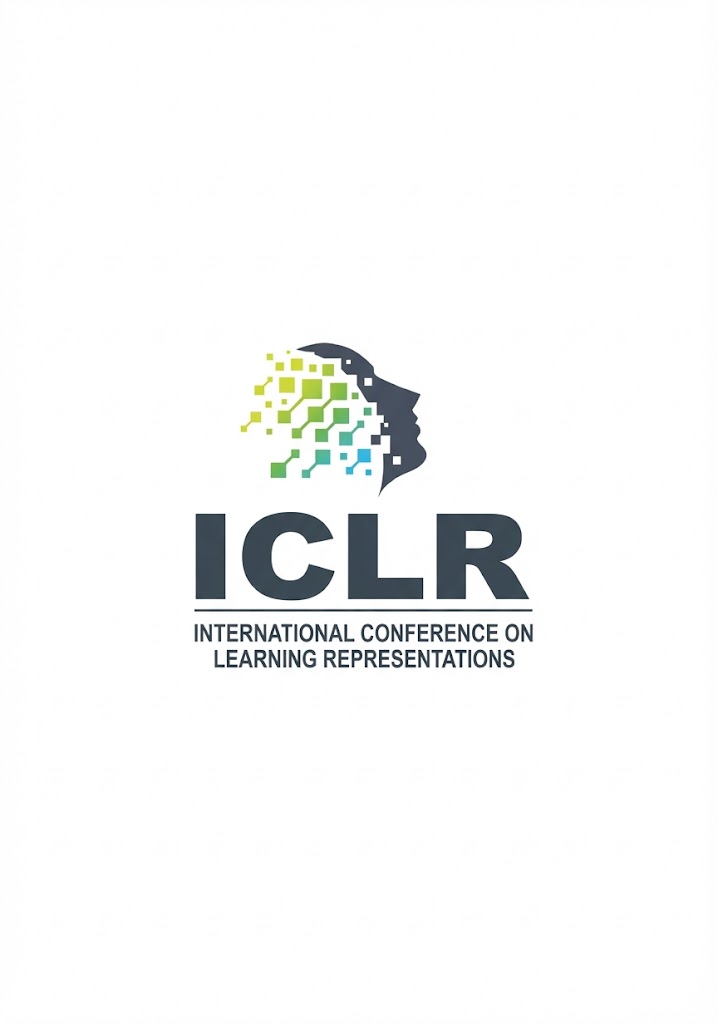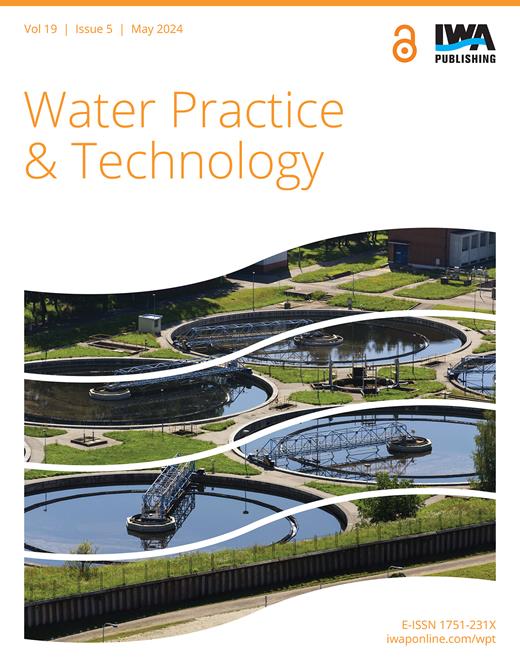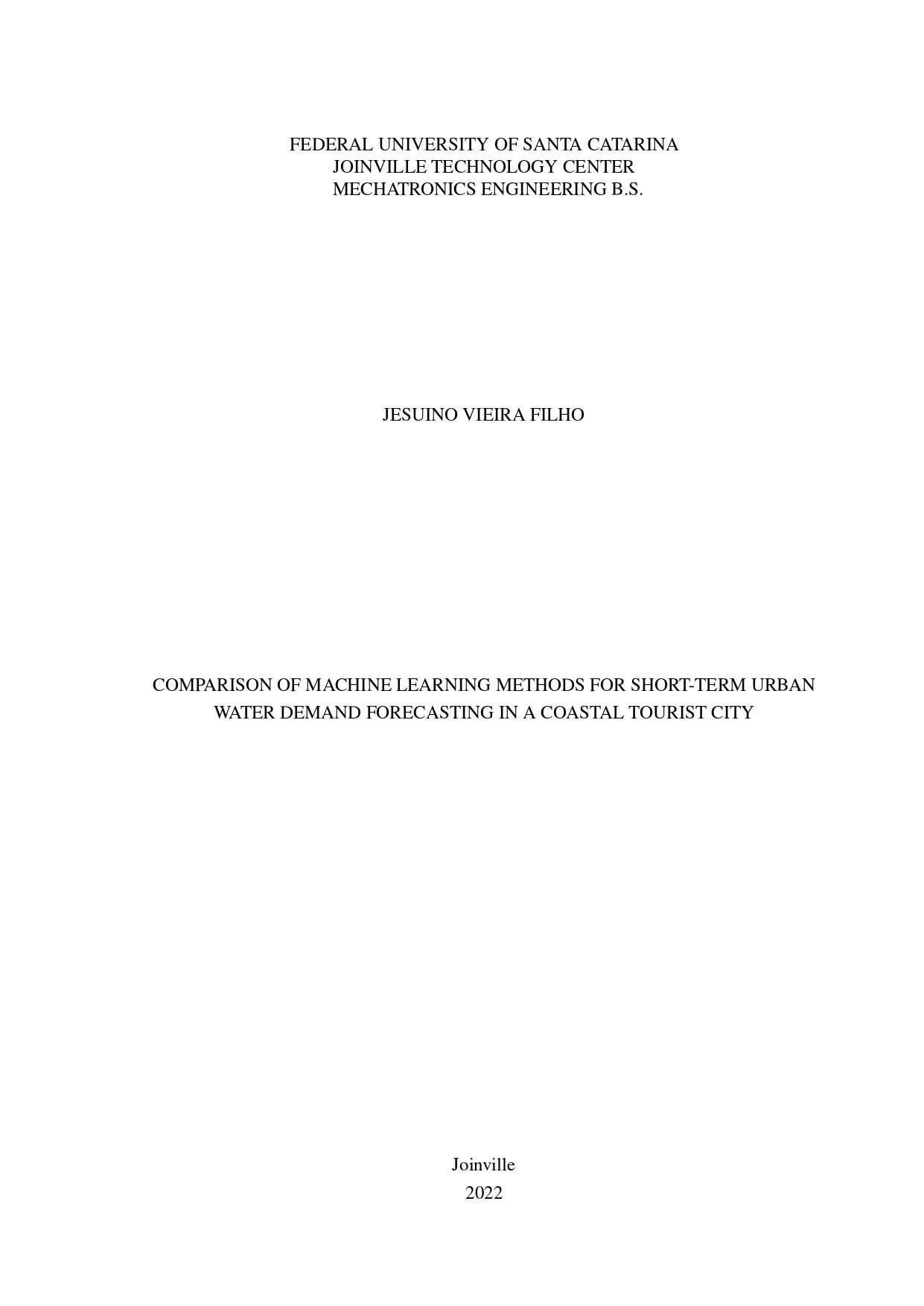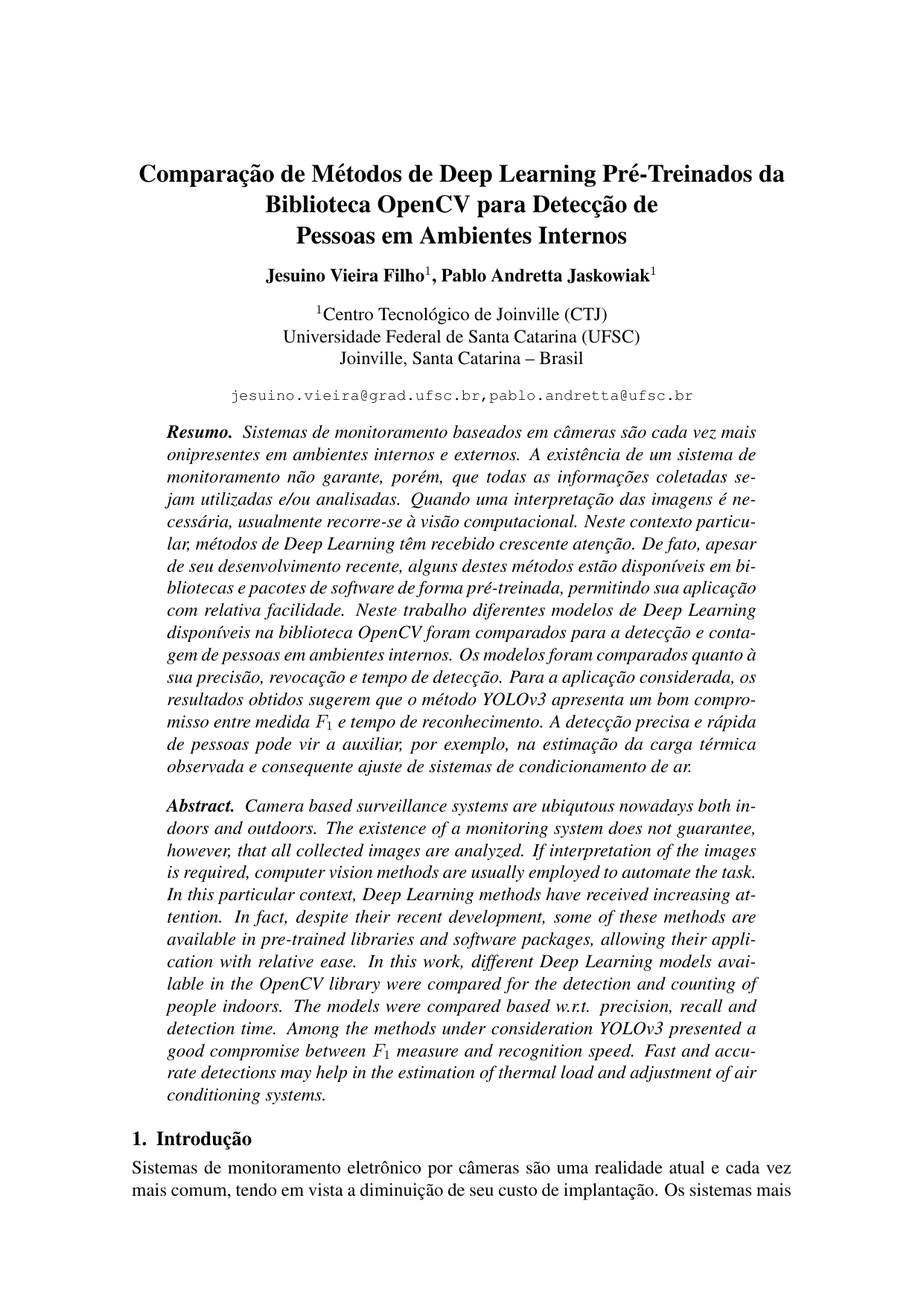publications
2026
-
 Characterizing human semantic navigation in concept production as trajectories in embedding spaceToro-Hernández, F. D., Vieira Filho, J., and Cabral-Carvalho, R. M.International Conference on Learning Representations, 2026In press
Characterizing human semantic navigation in concept production as trajectories in embedding spaceToro-Hernández, F. D., Vieira Filho, J., and Cabral-Carvalho, R. M.International Conference on Learning Representations, 2026In press@article{torohernandez2026characterizing, title = {Characterizing human semantic navigation in concept production as trajectories in embedding space}, author = {Toro-Hern{\'a}ndez, F. D. and Vieira Filho, J. and Cabral-Carvalho, R. M.}, journal = {International Conference on Learning Representations}, year = {2026}, note = {In press}, }
2024
-
 Machine learning for water demand forecasting: case study in a Brazilian coastal cityVieira Filho, J., Scortegagna, A., Sousa Dias Vieira, A. P., and 1 more authorWater Practice & Technology, 2024
Machine learning for water demand forecasting: case study in a Brazilian coastal cityVieira Filho, J., Scortegagna, A., Sousa Dias Vieira, A. P., and 1 more authorWater Practice & Technology, 2024Water resources management is crucial for human well-being and contemporary socio-economic development. However, the increasing use of water has led to various problems that affect its quality and availability. To address these issues, accurate forecasting of water consumption is essential for the optimal operation of water collection, treatment, and distribution systems. This study aims to compare four machine learning methods for predicting daily urban water demand in a Brazilian coastal tourist city (Guaratuba – Paraná). Historical data from the city’s water distribution system, spanning from 2016 to 2019 (1,461 measurements in total), were considered along with meteorological and calendar data to conduct the investigation. Three time series cross-validation approaches were considered for each method, thus totaling 12 evaluation settings. All models were subjected to hyperparameter optimization and evaluated using appropriate performance metrics from the literature. Results demonstrate the importance of using nonlinear models to predict short-term water demand, highlighting the problem’s complexity. From the compared models, multilayer perceptron provided the best results. Finally, regardless of the model, the best results were obtained by applying an expanding window time series cross-validation, indicating that the more historical data available, the better, in this particular case.
@article{filho2024machine, title = {Machine learning for water demand forecasting: case study in a Brazilian coastal city}, author = {Vieira Filho, J. and Scortegagna, A. and de Sousa Dias Vieira, A. P. and Jaskowiak, P. A.}, journal = {Water Practice \& Technology}, volume = {19}, number = {5}, pages = {1586--1602}, year = {2024}, publisher = {IWA Publishing}, doi = {https://doi.org/10.2166/wpt.2024.096}, }
2022
- BSc Thesis
 Comparison of machine learning methods for short-term urban water demand forecasting in a coastal tourist cityVieira Filho, J.2022
Comparison of machine learning methods for short-term urban water demand forecasting in a coastal tourist cityVieira Filho, J.2022Proper planning and management of water resources is fundamental to human well-being and contemporary socio-economic development. However, the use of increasing amounts of water has brought a series of problems that compromise its quality and durability. Given the scarcity of this natural resource and its inherent constraints, accurate forecasting of water consumption is imperative for the optimal operation of water collection, treatment, and distribution systems. Thus, the present work aims to study and compare different machine learning methods for predicting daily urban water demand in a Brazilian coastal tourist city. To this extent, four learning algorithms were employed: linear regression (LR), k-nearest neighbors (kNN), support vector regression (SVR) and multilayer perceptron (MLP). Moreover, three configurations of a time series cross-validation approach known as backtesting were considered for each method, two with a sliding window and one with an expanding window, totaling 12 models. They were all subjected to hyperparameter optimization (model selection), and then evaluated using appropriate performance metrics (model evaluation). To train the models, historical data from the city’s water distribution system (WDS) was collected, along with additional meteorological and calendar data. These raw data were submitted to exploratory analysis and preprocessing. The empirical results underscore the importance of using nonlinear models to predict short-term water demand. Based on the adopted performance metrics, MLP performed the best, while LR was the worst. SVR and kNN were second and third, respectively. With reference to the three backtesting configurations employed, each learning algorithm had its best model using the expanding window.
@bachelorsthesis{vieira2022comparison, title = {Comparison of machine learning methods for short-term urban water demand forecasting in a coastal tourist city}, author = {Vieira Filho, J.}, school = {Universidade Federal de Santa Catarina (UFSC)}, address = {Joinville, SC, Brazil}, year = {2022}, type = {Bachelor's thesis}, url = {https://repositorio.ufsc.br/handle/123456789/237501}, }
2020
-
 Comparação de metodos de deep learning pré-treinados da biblioteca OpenCV para detecção de pessoas em ambientes internosVieira Filho, J. and Jaskowiak, P. A.Revista Eletrônica de Iniciação Cientı́fica em Computação, 2020
Comparação de metodos de deep learning pré-treinados da biblioteca OpenCV para detecção de pessoas em ambientes internosVieira Filho, J. and Jaskowiak, P. A.Revista Eletrônica de Iniciação Cientı́fica em Computação, 2020Sistemas de monitoramento baseados em câmeras são cada vez mais onipresentes em ambientes internos e externos. A existência de um sistema de monitoramento não garante, porém, que todas as informações coletadas sejam utilizadas e/ou analisadas. Quando uma interpretação das imagens é necessária, usualmente recorre-se à visão computacional. Neste contexto particular, métodos de Deep Learning têm recebido crescente atenção. De fato, apesar de seu desenvolvimento recente, alguns destes métodos estão disponı́veis em bibliotecas e pacotes de software de forma pré-treinada, permitindo sua aplicação com relativa facilidade. Neste trabalho diferentes métodos de Deep Learning disponı́veis na biblioteca OpenCV foram comparados para a detecção e contagem de pessoas em ambientes internos. Os métodos foram comparados quanto à sua precisão, revocação e tempo de detecção. Para a aplicação considerada, os resultados obtidos sugerem que o método YOLO (v3) apresenta um bom compromisso entre medida F1 e tempo de reconhecimento. A detecção precisa e rápida de pessoas pode vir a auxiliar futuramente, por exemplo, na estimação da carga térmica observada e consequente ajuste de sistemas de condicionamento de ar.
@article{vieira2020comparacao, title = {Comparação de metodos de deep learning pré-treinados da biblioteca OpenCV para detecção de pessoas em ambientes internos}, author = {Vieira Filho, J. and Jaskowiak, P. A.}, journal = {Revista Eletr{\^o}nica de Inicia{\c{c}}{\~a}o Cient{\'\i}fica em Computa{\c{c}}{\~a}o}, volume = {18}, number = {4}, year = {2020}, doi = {https://doi.org/10.5753/reic.2020.1766}, }